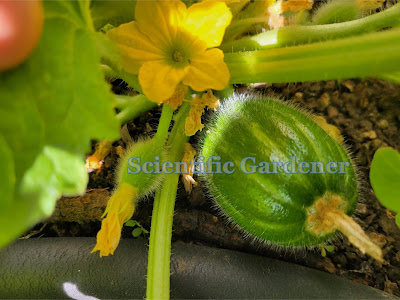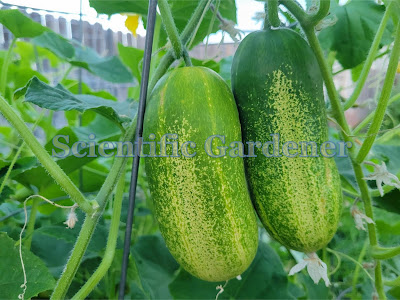After growing out the Minunceddha Paesana di Soleto in the greenhouse, I was excited to grow out the variety in the fertile garden. And the plot that I grew in was very fertile. Either because I was planning on growing my Robin Hood Fava beans to seed or because I was too busy to get around to them, I didn’t start the Paesana di Soleto until later in the season. I wasn’t able to put the plants into the ground until late June. Normally, a late start would be a big concern; but somehow leaving the fully-grown fava bean roots in the ground gave the Paesana di Soleto plants an incredible boost that continued throughout their growth. Male flowers began around the 20th of July and female flowers began appearing around the 24th. Fruit was in full production by August 1st and the entire crop was harvested by September 1st.
So – one of the things that I love about this variety is how compact the fruiting on it is. While the Tondo Barese is compact, this variety excels in production above the Tondo Barese – both in male and hermaphrodite female flowers. This may because it has been so intensely dry-cropped. The gentleman who entrusted this variety to me, Gino DiMitri, told me that the one thing he knew about the variety is that it was often grown dry-farmed, entirely without water. Given the extremely short season in which it produced a seed crop, I better understand how well suited this variety is to growing in a dry summer climate.
Another interesting trait of the Minunceddha Paesana di Soleto (minunceddhra refers to an indigenous muskmelon grown immature as a cucumber) is that the fruit occupies whatever space it is provided. The shiny tender-skinned fruit grows not only round or oval, but tends to take up the space that is provided it. Depending on what stems and trellises are already taking the room around the fruit female flowers, they can develop into cucumber-melons of various shapes and sizes.





























































































